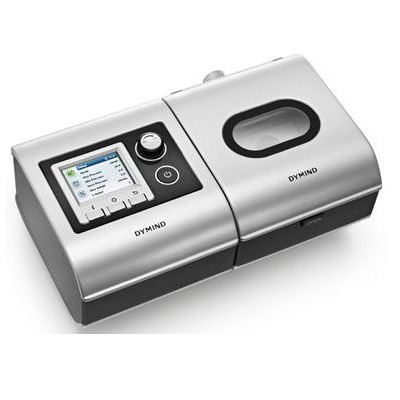AI Algorithm Combined With Blood Test Quickly and Accurately Diagnoses Heart Attacks in Women
|
By HospiMedica International staff writers Posted on 05 Sep 2022 |

Previous research has shown that women in the UK who have a heart attack receive poorer care than men at every stage. Women were 50% more likely to receive a wrong initial diagnosis, highlighting the need for innovations to help close the heart attack gender gap. Measuring the protein troponin in the blood is the current gold standard for diagnosing a heart attack. However, the levels of troponin released by the heart vary between men and women, with age and other health conditions. Current guidelines use the same threshold for all patients, meaning current tests are not as accurate as they could be. Now, an algorithm developed using artificial intelligence (AI) could help doctors to diagnose heart attacks in women more accurately and quicker than ever before.
Researchers at the University of Edinburgh (Edinburgh, Scotland) combined data from 10,038 people (48% women) who went to hospital with a suspected heart attack to develop an AI-based tool to help clinicians diagnose heart attacks more accurately. They then validated it on a further 3,035 people (31% women) outside of the UK. The tool, called CoDE-ACS, uses AI to combine routinely collected patient information when they arrive at hospital (including sex, age, observations, ECG findings and medical history) with the results from the troponin blood test. This then produces a score of 0 to 100.
The team found that CoDE-ACS was able to rule out a heart attack with 99.5% accuracy, confirming they were safe to go home. It also identified those who would benefit from staying in hospital for further tests, in whom the final diagnosis was a heart attack, with an accuracy of 83.7%. This compares to an accuracy of just 49.4% with current tests. Fewer than half of those identified for further testing using current approaches had a diagnosis of heart attack. The performance of the tool was consistent regardless of sex, age and pre-existing health conditions. Current tests mean that some patients’ troponin levels do not fit into the ‘rule in’ or ‘rule out’ thresholds, making clinical decisions more challenging. However, with a second troponin measurement, CoDE-ACS was able refine risk in the 29.5% of people who did not fit the simple ‘rule in’ or ‘rule out’ criteria allowing accurate determination if further action was needed.
“This is a huge step forward which promises to ensure everyone is on a level playing field when it comes to heart attack diagnosis and treatment,” said Professor James Leiper, our Associate Medical Director. “We know that women are more likely to receive a misdiagnosis, but by harnessing the power of AI, this team could provide one solution that helps to make that an issue of the past.”
“We’ve now embedded our algorithm into an easy-to-use mobile app to support doctors in guiding treatment decisions,” said Dimitrios Doudesis, data scientist at the BHF Centre for Cardiovascular Science, University of Edinburgh. “Whilst the troponin test takes 30 minutes to process, we take an array of other health information and add it into the app alongside the troponin measurement. This provides doctors with a precise and instantaneous score to confirm if they can reassure their patient that they haven’t had a heart attack and send them home, or if they require further tests.”
Related Links:
University of Edinburgh
Latest AI News
Channels
Critical Care
view channel
Light-Based Technology to Measure Brain Blood Flow Could Diagnose Stroke and TBI
Monitoring blood flow in the brain is crucial for diagnosing and treating neurological conditions such as stroke, traumatic brain injury (TBI), and vascular dementia. However, current imaging methods like... Read more
AI Heart Attack Risk Assessment Tool Outperforms Existing Methods
For decades, doctors have relied on standardized scoring systems to assess patients with the most common type of heart attack—non-ST-elevation acute coronary syndrome (NSTE-ACS). The GRACE score, used... Read moreSurgical Techniques
view channel
Minimally Invasive Endoscopic Surgery Improves Severe Stroke Outcomes
Intracerebral hemorrhage, a type of stroke caused by bleeding deep within the brain, remains one of the most challenging neurological emergencies to treat. Accounting for about 15% of all strokes, it carries... Read more
Novel Glue Prevents Complications After Breast Cancer Surgery
Seroma and prolonged lymphorrhea are among the most common complications following axillary lymphadenectomy in breast cancer patients. These postoperative issues can delay recovery and postpone the start... Read morePatient Care
view channel
Revolutionary Automatic IV-Line Flushing Device to Enhance Infusion Care
More than 80% of in-hospital patients receive intravenous (IV) therapy. Every dose of IV medicine delivered in a small volume (<250 mL) infusion bag should be followed by subsequent flushing to ensure... Read more
VR Training Tool Combats Contamination of Portable Medical Equipment
Healthcare-associated infections (HAIs) impact one in every 31 patients, cause nearly 100,000 deaths each year, and cost USD 28.4 billion in direct medical expenses. Notably, up to 75% of these infections... Read more
Portable Biosensor Platform to Reduce Hospital-Acquired Infections
Approximately 4 million patients in the European Union acquire healthcare-associated infections (HAIs) or nosocomial infections each year, with around 37,000 deaths directly resulting from these infections,... Read moreFirst-Of-Its-Kind Portable Germicidal Light Technology Disinfects High-Touch Clinical Surfaces in Seconds
Reducing healthcare-acquired infections (HAIs) remains a pressing issue within global healthcare systems. In the United States alone, 1.7 million patients contract HAIs annually, leading to approximately... Read moreHealth IT
view channel
Printable Molecule-Selective Nanoparticles Enable Mass Production of Wearable Biosensors
The future of medicine is likely to focus on the personalization of healthcare—understanding exactly what an individual requires and delivering the appropriate combination of nutrients, metabolites, and... Read moreBusiness
view channel
Philips and Masimo Partner to Advance Patient Monitoring Measurement Technologies
Royal Philips (Amsterdam, Netherlands) and Masimo (Irvine, California, USA) have renewed their multi-year strategic collaboration, combining Philips’ expertise in patient monitoring with Masimo’s noninvasive... Read more
B. Braun Acquires Digital Microsurgery Company True Digital Surgery
The high-end microsurgery market in neurosurgery, spine, and ENT is undergoing a significant transformation. Traditional analog microscopes are giving way to digital exoscopes, which provide improved visualization,... Read more
CMEF 2025 to Promote Holistic and High-Quality Development of Medical and Health Industry
The 92nd China International Medical Equipment Fair (CMEF 2025) Autumn Exhibition is scheduled to be held from September 26 to 29 at the China Import and Export Fair Complex (Canton Fair Complex) in Guangzhou.... Read more















